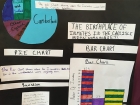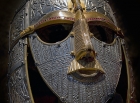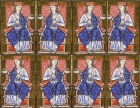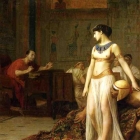Significance
The focus around this concept is on recognizing why a person of event is of importance. Children are encouraged to evaluate the relevance of the contribution of different individuals or how an event came to affect future generations. Children can apply a number of criteria to evaluate significance such as those of Partington (1980) who suggested they consider: Read more
Sort by:
Date (Newest first) | Title A-Z
Show:
All |
Articles |
Podcasts |
Multipage Articles
-

Little coins, big histories
ArticleClick to view -

Exploring the history of space
ArticleClick to view -

Making the most of a visit to the Museum of London Docklands
ArticleClick to view -

Significance
ArticleClick to view -

Significant anniversaries: the infamous Beeching Report 1963
ArticleClick to view -

Wangari Maathai as a significant individual
ArticleClick to view -

The Great Exhibition of 1851: teaching a significant event at Key Stage 1
ArticleClick to view -

Significance and interpretation in primary history
ArticleClick to view -

Film: What's the wisdom on... Historical Significance (Primary)
ArticleClick to view -

Local significant individuals
Multipage ArticleClick to view -

Making the most of a census
ArticleClick to view -

Getting to grips with concepts in primary history
ArticleClick to view -
One of my favourite history places: Fulham Palace
ArticleClick to view -

A trail of garnet and gold: Sri Lanka to Anglo-Saxon England
ArticleClick to view -

Using the back cover image: Mummified cat
ArticleClick to view -

Anglo-Saxon Women
ArticleClick to view -

What made Cleopatra so special?
ArticleClick to view -

The Stone Age conundrum
ArticleClick to view -

Beyond compare a study of Beatrix Potter and Benjamin Zephaniah
ArticleClick to view -

Remembering Agincourt: Bilingual Enquiry
Multipage ArticleClick to view

